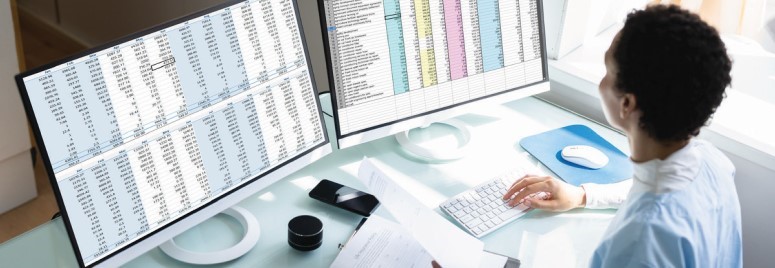

Health/Health Careers
Professional Medical Coder
This short-term, noncredit program offers the skills needed to become a professional medical coder. Medical coders are responsible for the collection of physician charges and patient data to ensure that claims are submitted accurately and in the most efficient and expeditious manner. Medical coders locate and identify codes for physician procedures and diagnosis using ICD-10, CPT, and HCPCS coding protocols for billing purposes. This course provides anatomy and physiology of various body systems, medical and disease terminology, types of medical providers and insurances, how to accurately code procedures and specialty fields (such as surgery, radiology, and laboratory), and coding evaluation and management services. This program is certified by the American Academy of Professional Coders (AAPC.)
Ready to learn more? Complete our online form or contact us at 319-398-1022.
Upcoming Offerings:
No upcoming dates at this time.
Tuition Assistance:
Yes. Full tuition assistance is available to support your career goals. Fill out our referral form at www.kirkwood.edu/cefunding.
*Some eligibility restrictions may apply.
Industry Credentials Earned:
Completion of this course will qualify the student to take the CPC exam. Passing the CPC exam plus successful completion of the course will take one year off of the required two-year apprenticeship that removes the “A” from the students CPC-A certification. Completion of the practicum at the end of the program takes an additional year off of the apprenticeship, resulting in the student fully becoming a Certified Medical Coder.
Entrance Requirements/Prerequisites:
Prospective students must be 18 years of age or older and have evidence of high school diploma or equivalent.
Delivery Method:
Online (see "Other Items to Know" for online requirements)
Length of Program and CEU Credits:
72 hours
Program Completion Requirements:
This is a pass/fail course. Chapter review exams, the final exam, and overall final course score must be 70 percent or higher.
Course Objectives:
- Understand the health care system and the role of the medical coder.
- Maintain confidentiality of privileged information on individuals.
- Correctly identify and use basic medical terminology.
- Define anatomy and physiology and use anatomic reference systems to identify the anatomic position for all major organ systems.
- Master anatomy as it relates to the procedural coding manual.
- Understand disease terms as they relate to the diagnostic coding manual.
- Identify the purpose of the CPT, ICD-10-CM, and HCPSC Level II code books.
- Apply coding conventions when assigning diagnoses and procedure codes.
- Understand and apply the official ICD-10-CM coding guidelines.
- Identify the information in appendices of the CPT code book.
- List the major features of HCPCS Level II codes.
- Explain the determination of the levels of E/M services.
- Code a wide variety of patient services using CPT, ICD-10- CM, and HCPCS Level II codes.
- Provide practical application of coding operative reports and evaluation and management services.
Learning Outcomes:
Upon successful completion of the program, students will know background medical terminology and how to accurately locate and identify codes for a wide variety of patient services using ICD-10, CPT, and HCPCS manuals to work as a medical coder in a healthcare setting. Students will also be prepared to take the CPC certification exam.
Other Items to Know About this Course:
Class is taught through live online lectures in addition to online modules. Program fee includes all textbooks. Participation in this course will require the following: 1) High-speed Internet connection; 2) Up to date operating system and web browser; Mozilla Firefox, Chrome, Safari or Edge; 3) Working web cam and speakers; 4) Adobe reader. For the best experience, use of a mobile device is not recommended. Please check here for more information on the specifics of the operating system and internet/web browser.
For students who successfully complete the course and meet requirements, the program fee will also cover online practice exams and review, the Certified Professional Coder (CPC) certification exam, AAPC student membership, and Practicode CPC-A Practicum.
Pathway to Credit Program:
None.
Related Information:
NA
